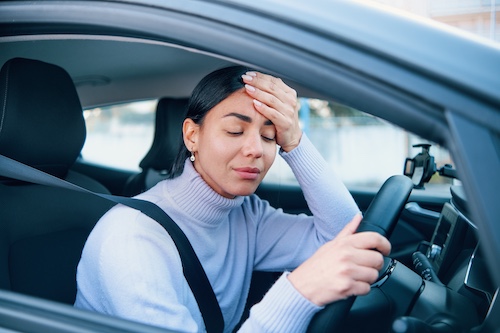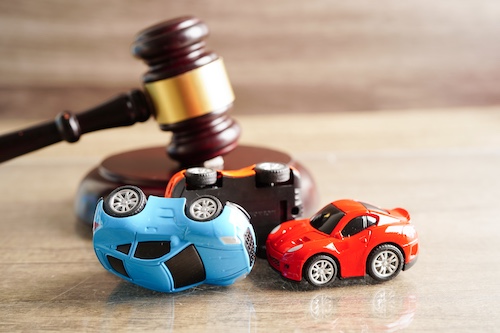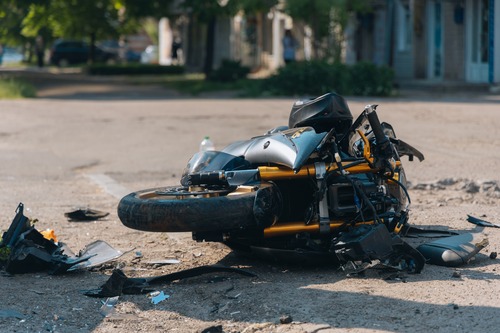Psychological Injuries After a Car Accident: What Victims in North Carolina Need to Know
At NC Car Accident Lawyers, we represent car crash victims throughout North Carolina. Our team of skilled attorneys focuses on helping clients who have suffered physical injuries and emotional or psychological trauma—such as anxiety, depression, or post‑traumatic stress disorder—after an accident. We work closely with medical professionals and mental health specialists to document these psychological injuries and hold negligent drivers accountable. You will receive direct communication, clear advice, and strong advocacy from the moment you reach out.
Car accidents often cause more than broken bones and bruises. Many victims suffer psychological injuries that affect their thinking, behavior, and ability to live a normal life. These invisible wounds can include posttraumatic stress disorder, anxiety, and depression. Left untreated, they can lead to serious problems with work, family, and physical health. In North Carolina, victims may have the right to seek compensation for emotional and psychological trauma. Understanding your rights and options is the first step to recovery.
In this blog, you’ll learn how car accidents can cause psychological injuries, what symptoms to watch for, how North Carolina law treats emotional trauma, and why working with an experienced Raleigh car accident attorney is important to protect your rights and secure proper compensation.
What Are Psychological Injuries?
Psychological injuries are mental health conditions that develop after a traumatic event. These injuries are common after car accidents and can affect daily life, relationships, and physical health.
Defined by the Diagnostic and Statistical Manual
The Diagnostic and Statistical Manual of Mental Disorders (DSM-5) lists several mental disorders that may result from trauma. These include posttraumatic stress disorder (PTSD), acute stress disorder, depression, and anxiety. These conditions are classified as psychological injuries when they are caused by a traumatic event like a car accident.
Emotional and Behavioral Impact
Psychological injuries can lead to emotional distress, intrusive thoughts, difficulty falling asleep, muscle tension, and changes in behavior. People may avoid driving, isolate themselves, or experience mood swings. Others may turn to substance abuse or experience suicidal thoughts as a way to cope.
Invisible but Serious
Unlike a physical injury, a psychological injury is not visible. Survivors may appear fine but feel overwhelmed or unstable. These symptoms can last for long periods and affect mental health, self-esteem, and family life.
Common in Trauma Survivors
Psychological injuries are common in trauma survivors who have lived through serious accidents, domestic violence, or other life-threatening events. A car accident can trigger past trauma or create new traumatic memories that disrupt normal routines.
Requires Professional Support
Most people need help from a mental health professional to understand and treat their condition. With the right care, trauma symptoms can improve. Without help, they may worsen and affect all areas of life.
How Car Accidents Trigger Emotional and Psychological Trauma
Car accidents are traumatic events that often lead to emotional and psychological injuries, even when physical harm is minor or absent.
Sudden Shock to the Nervous System
The impact of a car crash activates the body’s stress response. The brain releases hormones that prepare the body for danger. This reaction can overwhelm normal processing, leading to acute stress disorder or posttraumatic stress disorder (PTSD).
Feeling of Helplessness
Many people feel powerless during a crash. This lack of control can create traumatic stress that lingers. Survivors may develop emotional trauma and experience flashbacks, nightmares, or intrusive thoughts related to the crash.
Life-Threatening Experience
Even a minor accident can feel life-threatening. The fear of serious injury or death triggers the brain’s trauma response. This is true whether the person was physically hurt or not. The brain may store the event as a traumatic memory, leading to anxiety or depression.
Loss or Injury to Others
Seeing a loved one injured or killed in a crash creates deep emotional wounds. Survivors may suffer emotional distress, guilt, or psychological symptoms that interfere with their daily life and relationships.
Triggering Past Trauma
Car accidents can reopen old wounds. People with a history of domestic abuse, family violence, or emotional abuse may experience a stronger reaction. The accident acts as a new trauma that adds to what they have already survived.
Disruption of Normal Routine
A crash can disrupt work, family life, and health. Survivors may lose income, suffer chronic pain, or be unable to drive. These changes often increase feelings of anxiety and reduce well-being. The result is often a combination of mental illness and physical symptoms.
Psychological Symptoms Following a Car Accident
Many people experience psychological symptoms after a car accident. These symptoms may appear immediately or develop over time.
Emotional Reactions
Common emotional responses include fear, sadness, anger, and guilt. These feelings often come without warning. Some people cry easily, others feel numb. These are normal reactions to a traumatic event.
Changes in Behavior
Survivors may avoid driving or riding in cars. Some isolate from family or friends. Others show aggressive behavior, head banging, or changes in eating and sleeping habits. These shifts can affect family life, work, and social activity.
Sleep Disturbances
Many report poor sleep, nightmares, or difficulty falling asleep. Sleep loss increases stress and weakens emotional control. This often leads to more serious problems like depression or substance abuse.
Physical Symptoms Without Injury
Psychological injuries can create physical symptoms with no clear medical cause. These include headaches, chest pain, stomach problems, or muscle tension. These symptoms are often linked to trauma symptoms or chronic stress.
Intrusive Thoughts and Flashbacks
Some people relive the accident through intrusive thoughts or flashbacks. These moments feel real and can trigger panic. They are a key sign of post-traumatic stress disorder or other stress disorders listed in the Diagnostic and Statistical Manual.
Withdrawal and Isolation
Victims may stop engaging with others. They may feel detached, lose interest in activities, or avoid significant relationships. This can lower self-esteem and worsen mental health.
Harmful Coping Behaviors
Some cope through self-medicating, using alcohol or drugs to reduce pain. Others show signs of suicidal thoughts or risky behavior. These reactions require urgent help from a mental health professional or behavioral health services.
North Carolina Law on Emotional and Psychological Injuries
This section outlines how North Carolina law treats claims for emotional and psychological trauma arising from car accidents and other personal injuries.
Statute of Limitations
In North Carolina, you generally have three years from the date of your traumatic event to file a personal injury lawsuit, including for emotional or psychological injuries, under North Carolina General Statute § 1‑52.
Compensable Damages
Victims may recover non‑economic damages for psychological injury—such as emotional trauma or mental anguish—when these harms are caused by a car accident. North Carolina law places no cap on non‑economic damages in most personal injury claims.
Medical Malpractice Exception
If the emotional or psychological injury arises in the context of medical negligence, the statute North Carolina General Statute § 90‑21.19 caps noneconomic damages (including emotional distress) in those cases.
Intentional and Negligent Infliction of Emotional Distress
North Carolina recognizes the torts of Intentional Infliction of Emotional Distress (IIED) and, in limited cases, Negligent Infliction of Emotional Distress (NIED). For IIED the conduct must be “extreme and outrageous” and the emotional distress “severe.” For NIED, courts are stricter, and linking the psychological injury to the traumatic event or negligent act is essential.
Role of Fault and Contributory Negligence
North Carolina follows a contributory negligence system. If you are even partially at fault for the accident that caused your psychological injuries, you may be barred from recovery.
Evidence Required for Recovery
To recover for psychological injuries, a victim must provide evidence such as:
- A diagnosis from a mental health professional or records showing a psychological condition (e.g., PTSD, depression)
- A causal link between the car accident and the psychological injury
- Documentation of the emotional and behavioral health services required
Take Action for Your Emotional and Psychological Injuries
If your life has changed after a car accident and you’re facing psychological injuries, our team at NC Car Accident Lawyers is here to help. A dedicated Raleigh car accident attorney can review your case, gather the evidence for your emotional trauma, and fight to secure compensation for your emotional distress, therapy costs, lost income, and more.
Contact us at 864-561-6247 for a free case consultation today!







